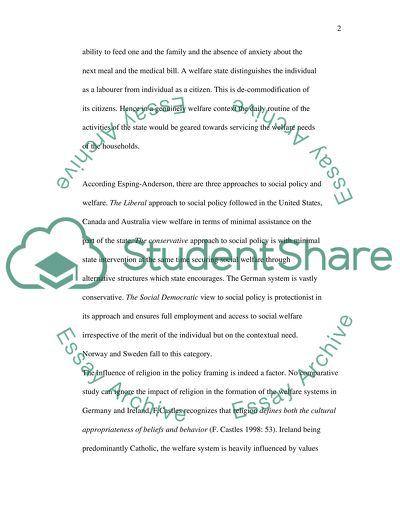Cite this document
(“Irish and German Welfare Systems Essay Example | Topics and Well Written Essays - 1750 words”, n.d.)
Retrieved from https://studentshare.org/sociology/1532897-irish-and-german-welfare-systems
Retrieved from https://studentshare.org/sociology/1532897-irish-and-german-welfare-systems
(Irish and German Welfare Systems Essay Example | Topics and Well Written Essays - 1750 Words)
https://studentshare.org/sociology/1532897-irish-and-german-welfare-systems.
https://studentshare.org/sociology/1532897-irish-and-german-welfare-systems.
“Irish and German Welfare Systems Essay Example | Topics and Well Written Essays - 1750 Words”, n.d. https://studentshare.org/sociology/1532897-irish-and-german-welfare-systems.


